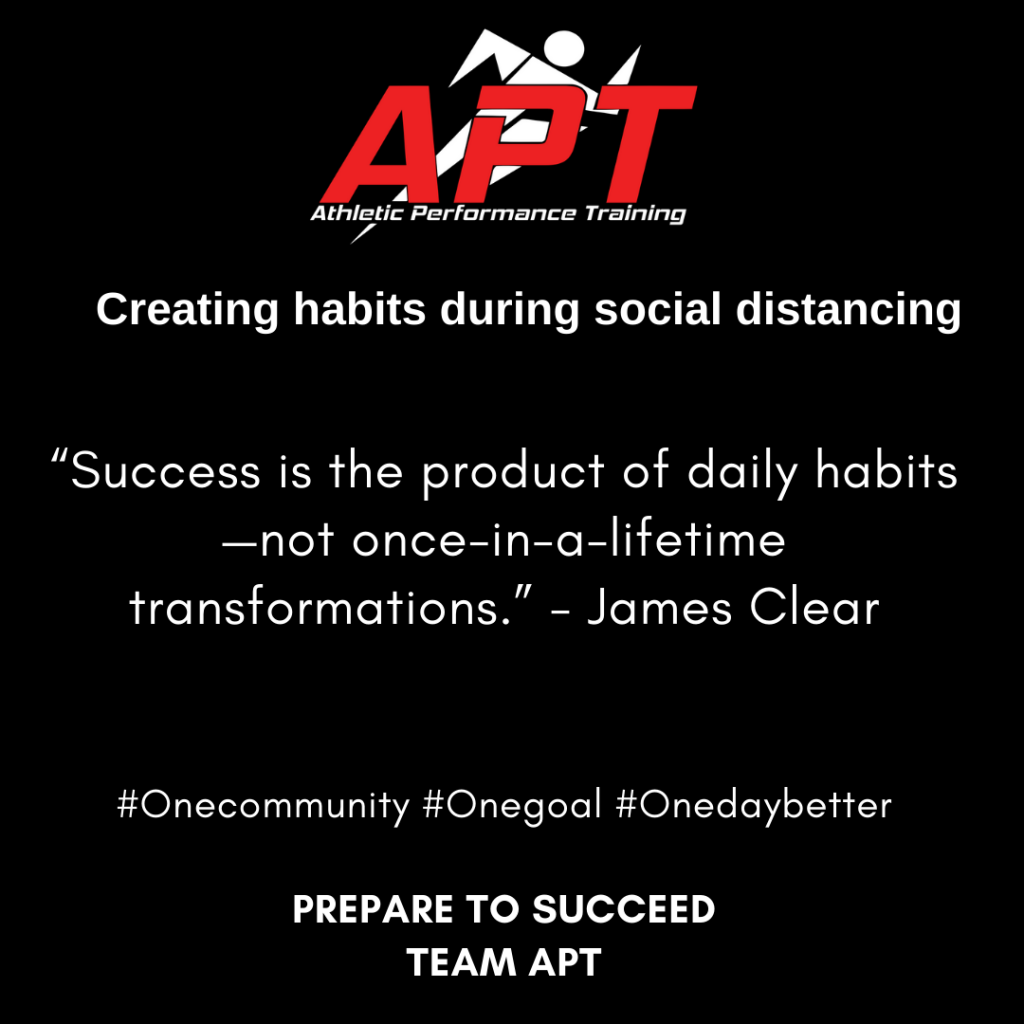Creating habits during social distancing

Creating habits during social distancing
During this downtime where social gatherings such as sporting events, meetups with friends, and going out to eat may be unavailable to us; there leaves a lot of time to think about how we structure our days and what habits we currently follow. Among these, there are likely a handful of habits we could improve upon or change within this time. The most likely ones to come to mind may involve improving nutrition, making sleep a bigger priority, staying active, or adjusting our work/life balance. In this post we’ll be discussing some strategies you can use to begin making changes to your habits in daily life, which will hopefully carry over as we readjust to a more normal schedule again in the near future.
“Success is the product of daily habits—not once-in-a-lifetime transformations.” - James Clear
As mentioned in the quote above, success will come from the small changes that take place day after day. Time and time again I see individuals try to make a 360° flip right off the bat, and very rarely are these individuals able to see their goals fully realized. Let’s run through a quick example using weight loss as the goal during this timeframe. Imagine you consume a coffee with additives every morning, the goal shouldnt be to completely remove this product entirely, but instead to opt for no cream or sugar to reduce any excess calories. After adjusting to this change and sticking to it over the course of weeks and months, the sum of those excess calories can make a difference. Stack this habit among other small habits, and you’ll be noticing sustainable outcomes shortly thereafter. In another example, let’s say you want to set a goal to exercise every day for an hour. Jumping into this head first may go well for a few days, but the first time you miss a day you think all progress is lost and you start finding reasons not to continue. Instead of setting a goal for an hour of exercise each day, maybe you just start with a daily walk for however long you’re comfortable with. After a couple weeks of walking everyday you might have already started to increase the distance or time, or you may even decide that it’s time to pick it up a notch and opt for a harder exercise during this timeframe. The point is, small changes will snowball into a bigger outcome.
An additional thought process you can adapt is to start thinking in the perspective of your goal-individual. For example, let’s say you want to be a professional athlete in your favorite sport. Throughout the day when tasks arrive, you can quickly ask yourself “What would a professional _______ do in this scenario?” In most cases it’s easy to imagine what outcome they would choose, and will start to lead you down the path that aligns with your goals. Another bonus to this process is that you begin to associate yourself with that outcome or individual. The more you make decisions like a top level athlete would, the more you depict yourself in your own head as a top level athlete. The confidence and conviction that comes along with this shift in mindset is not to be overlooked.
Prepare to Succeed
Team APT
